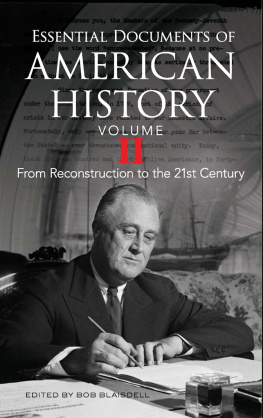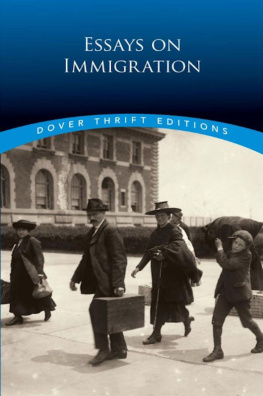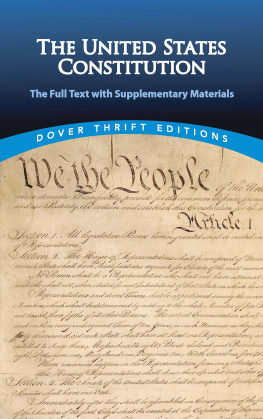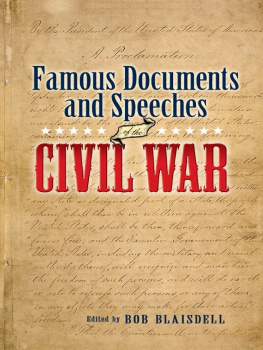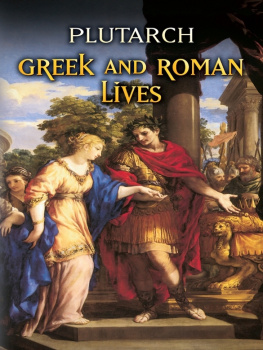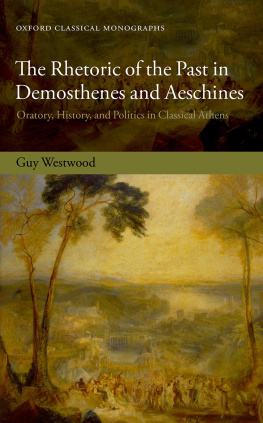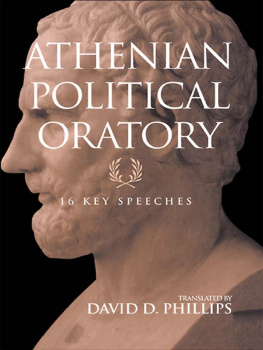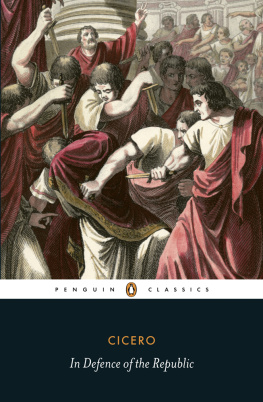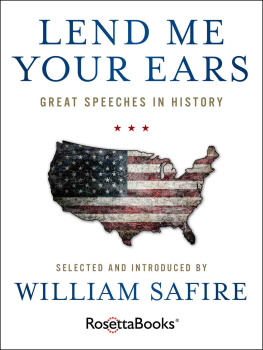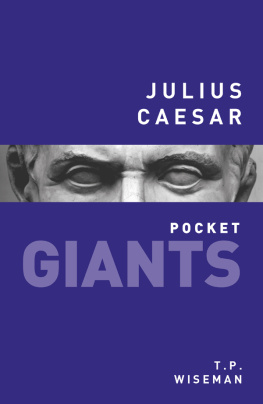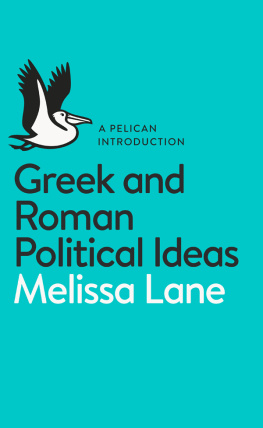Greek and Roman Oratory
Greek and Roman Oratory
Edited by Bob Blaisdell
DOVER PUBLICATIONS, INC.
Mineola, New York
DOVER THRIFT EDITIONS
GENERAL EDITOR: MARY CAROLYN WALDREP
EDITOR OF THIS VOLUME: JIM MILLER
Copyright
Copyright 2014 by Dover Publications, Inc.
All rights reserved.
Bibliographical Note
Greek and Roman Oratory is a new work, first published by Dover Publications, Inc., in 2014.
International Standard Book Number
eISBN-13: 978-0-486-78290-4
Manufactured in the United States by Courier Corporation
49622801 2014
www.doverpublications.com
Contents
NOTE
Never in my opinion would the founders of cities have induced their unsettled multitudes to form communities had they not moved them by the magic of their eloquence: never without the highest gifts of oratory would the great legislators have constrained mankind to submit themselves to the yoke of law. Nay, even the principles which should guide our life, however fair they may be by nature, yet have greater power to mold the mind to virtue, when the beauty of things is illumined by the splendor of eloquence.
Quintilian, The Institutio Oratoria
There are many good reasons to read the Greek and Roman classics, perhaps the first being the pleasure of being in the company of ancient minds creating the modern mind. The past seems present. In their histories and impromptu speeches we encounter all of our familiar problems of negotiating social dynamics in the midst of international politics or of justifying warfare. Despite the full complement of shysters and criminals among the orators, the Greek and Roman statesmen can make us wish our own politicians and thinkers were as vigorous and intelligent, as incisive and bold. When oratory is considered in all its periods, wrote Guy Carleton Lee, the compiler of a vast collection of the worlds speeches, it will be found that although there are vestiges of eloquence in the sacred writings of the Hebrews, and various manifestations of the divine gift among other great nations of ancient times, yet it was among the Greeks that public speech as an art took its origin, had its development, and attained its acme; and in the period of its perfect flower produced the models of eloquence for all succeeding statesmen and orators.
I have assembled over twenty speeches here that for the most part are famous less for their effect on events of the time than for the elation readers ever after have felt as they reimagine these situations in which various leaders attempt to raise spirits or turn a tide. There are orators we appreciate as heroes (e.g. Pericles, Socrates, Demosthenes, Cicero) as well as those we pity as villains; for example, our sympathetic understanding of the dastardly Catiline results from our appreciation of his chutzpah and recklessness of purpose, his impending doom. We can enjoy slippery Alcibiades irresistibly advocating for Athens mistaken and fateful assault on Sicily.
The men who recorded or recreated or reimagined these speeches were geniuses of expression. Quintilian, who ran an ancient school of rhetoric, reflects: Is it not a noble thing, by employing the understanding which is common to mankind and the words that are used by all, to win such honor and glory that you seem not to speak or plead, but rather, as was said of Pericles, to thunder and lighten? What was fresh to the orators and their audiences remains fresh today.
Thucydides, a writer whose mind makes an overwhelming impression on his reader, Thucydides believed in the importance of detailing the unfolding years of the war and though in the midst of them, writes ever dramatically, seriously, intently.
The little that we know about Thucydides is furnished by himself, writes the classicist Edward Capps. At the outbreak of the Peloponnesian war, in 431 B. C., he was a man of maturity; we may therefore place the date of his birth about 470 B. C. An Athenian by birth, his fathers family were originally Thracians, closely related to the wife of Miltiades, the hero of Marathon. We can only conjecture what were the influences which surrounded his youth and early manhood; but since his family was wealthy and influential, and he himself exceptionally endowed by nature, we may believe that he participated fully in the marvelous and many-sided culture for which the age of Pericles was distinguished. For a time after the outbreak of the war he was one of the Athenian generals. In 424 B. C. an event occurred, however, which doubtless seemed a heavy misfortune to him, though in reality it was the turning-point of his life and opened to him the career for which his talents best fitted him. While he was in command of an Athenian fleet off the Thracian coast, the Spartan general Brasidas surprised and captured Amphipolis, the principal Athenian possession in northern Greece. Thucydides was near enough to have prevented the capture of the stronghold, but he lingered in the neighborhood of some gold mines which belonged to him and arrived too late. Whatever the reason was for his delay, the Athenians promptly deprived him of his command, and he lived in exile for twenty years, until the end of the war in 404 B. C. During this time he followed the war closely, gathered facts from the Spartan as well as from the Athenian side, visited many important sites, probably including Sicily, and thus laboriously and conscientiously got together the materials for his history. He died about 398 B. C.
The speeches Thucydides relates are always closely reasoned; everybody in his history is similar in that theyre smart , even the most violent of Athenians Cleon, who, in the midst of ruthless and cynical insights, occasionally startles us with simple brilliance: Mankind apparently find it easier to drive away adversity than to retain prosperity. Thucydides does not admire chameleons like Alcibiades, but he presents in quick, sharp strokes Alcibiades energy, talents and peculiarities: He had a great position among the citizens and was devoted to horseracing and other pleasures which outran his means. And in the end his wild courses went far to ruin the Athenian state. The objection that Thucydides was not an eyewitness to all of the speeches and his own admission that the speeches are at least in part creations of his understanding of the men and events he narrates does not diminish or distract from the speeches power and illumination. Historys great speeches have rarely been, until fairly recently when electronic recordings have been possible, actual transcriptions. We have vast evidence, for instance, of discrepant reportage of speeches during the American Civil War and even today, we note the discrepancies between press releases of political speeches and their actual deliveries.


